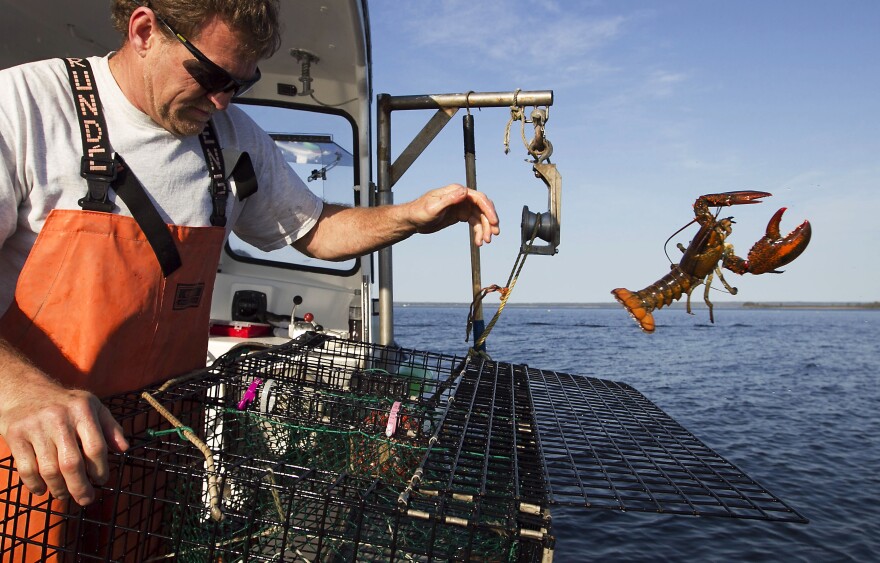Collins, State Working To Level Playing Field for Maine, Canadian Lobstermen
Maine lobstermen hauling traps in an internationally disputed section of the Bay of Fundy, known as the “gray zone,” will be allowed some extra hours working at sea this year under a resolve recently enacted by the Maine Legislature. It’s the latest but likely not the last skirmish in a long-running conflict between Canada and the U.S. over fishing rules in the zone.
The roughly 210-square mile area that includes uninhabited Machias Seal Island is claimed by both Canada and the U.S. It’s a fertile fishing ground, and lobster fleets from each country harvest there, with uneasy and sometimes openly hostile relations.
One complaint from Maine lobstermen: In the peak harvest months of September and October, they are barred from hauling traps outside daylight in the gray zone, while Canadian fishermen can work the same territory 24-7.
“Passing this bill would put a very small bandage on a very large wound,” says John Drouin, a Cutler lobsterman and chairman of the Zone A Lobster Council who fishes in the gray zone.
Drouin testified before the Legislature’s Marine Resources Committee earlier this year. He says some Maine lobstermen believe Canadians are stealing lobsters from Mainers’ traps during the dark hours when the Americans typically are not at sea.
Maine lobstermen, Drouin adds, would have more incentive to patrol their traps at night if they could also tend their gear at the same time.
“Enforcement is very difficult for either country against the opposing country. So just being able to be out on the water working our gear is most times enough of a deterrent. And with the ever-increasing cost of bait and a looming bait shortage, it is a tremendous financial hit to have your lobsters stolen from your traps,” he says.
“I do take exception to the idea that, you know, we’re hauling their gear,” says Melanie Sonnenberg, general manager of the Grand Manan Fishermen’s Association, which represents Canada harvesters who work the gray zone or, as it’s called in Canada, Area 38B.
Despite the ongoing tension, Sonnenberg says allowing Maine fishermen to haul traps during the same hours as their Canadian counterparts should not add new acrimony to the sometimes fraught gray zone dispute.
“It’s coming from both sides, and it’s a very competitive area, and there is a lot of interaction between all parties, so I think at the end of the day it levels the playing field for them some,” she says.
And while addressing the nighttime restriction may seem like a small step, other areas of potential conflict are also getting new attention. At a recent subcommittee hearing of the U.S. Senate Appropriations Committee, Republican U.S. Sen. Susan Collins of Maine told trade and fisheries officials she was concerned that in the gray zone, Maine lobstermen must abide by state lobster conservation rules, such as throwing an oversize lobster back, while Canadians have no such rules for a similar-size lobster.
“It can be pulled up by a Canadian lobsterman 50 yards away and brought to market. So the implications of these regulatory discrepancies can be very concerning, and very unfair to Maine’s lobstermen, scallop fishery and also halibut,” she said.
With fishermen in both countries facing new gear and effort rules aimed at protecting the increasingly endangered North Atlantic right whale, tensions over disputed boundaries could rise. Collins called on the acting chief of the Commerce Department, which oversees U.S. fisheries, to work with Maine and Canadian officials to consider ways to cooperatively manage the gray zone.
Maine’s Department of Marine Resources, meanwhile, is developing a rule to better define the boundaries of the gray zone and, for this year only, lift the nighttime lobster harvesting restriction for September and October.
Copyright 2019 Maine Public




